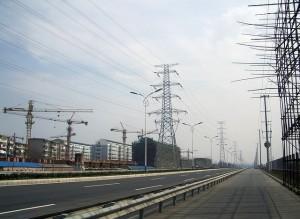 In a development with important implications for the future expansion of renewable energy generation and use in Japan, a Japanese government panel on February 8 gave its endorsement to a report outlining a reform of the country’s energy sector regulations, including the end of regional monopolies of energy utilities. The Ministry of Economy, Trade and Industry (METI) industry panel proposal outlined a series of reforms to be completed by the year 2020. Under the proposal, the government would by 2015 establish an independent entity to oversee power supply and demand across the country, and which would have authority over electric companies including to require them to send surplus electricity to areas facing power shortages. Following this, the government would by 2016 liberalize electricity retailing in order for new market entrants to sell power to households and small and medium-sized enterprises, and issue separate licenses for energy generation and transmission. Between 2018 and 2020, Japan’s ten regional electricity utilities, which currently control both energy generation and transmission, would be required to separate these two operations, effectively ending their monopolies.
In a development with important implications for the future expansion of renewable energy generation and use in Japan, a Japanese government panel on February 8 gave its endorsement to a report outlining a reform of the country’s energy sector regulations, including the end of regional monopolies of energy utilities. The Ministry of Economy, Trade and Industry (METI) industry panel proposal outlined a series of reforms to be completed by the year 2020. Under the proposal, the government would by 2015 establish an independent entity to oversee power supply and demand across the country, and which would have authority over electric companies including to require them to send surplus electricity to areas facing power shortages. Following this, the government would by 2016 liberalize electricity retailing in order for new market entrants to sell power to households and small and medium-sized enterprises, and issue separate licenses for energy generation and transmission. Between 2018 and 2020, Japan’s ten regional electricity utilities, which currently control both energy generation and transmission, would be required to separate these two operations, effectively ending their monopolies.
These recommendations, which Nikkei (Japan’s counterpart to The Wall Street Journal) strongly endorsed in an editorial, represent continued progress in long-standing efforts to reform Japan’s electricity industry through increasing competition in the sector. The disruptions to electricity supply generated by the Fukushima nuclear disaster brought new impetus towards addressing the challenges inherent in Japan’s current energy grid and infrastructure. These include Japan’s fragmented power grid (a good schematic of Japan’s grid system in comparison with that of Europe is included in this presentation by Tony Zeitoun of ABB Japan), operating on two separate frequencies, which severely limited the ability of utilities in western Japan to support the power needs of Tokyo and eastern Japan during the Fukushima crisis. Additionally, the shutdown of virtually all nuclear power plants in Japan during the past year, coupled with the costs of procuring imported oil and gas to meet Japan’s energy needs, has significantly spiked electricity rates for Japanese businesses and residential consumers and increased calls for actions to keep energy costs in check.
Control by Japan’s regional power utilities over both energy transmission and supply (despite 1990s reforms intended to enable businesses to supply power to utilities and large-lot energy consumers) has until now limited nascent efforts to increase competition that could help reduce costs for energy users and increase efficiencies. This same structure, combined with the massive investments made over decades by the major regional utilities to construct and operate nuclear power plants, also created disincentives for large-scale expansion of non-hydropower renewable energy generation. While Japan’s feed-in tariff law requires utilities to purchase power generated through renewable energy resources, effectively making renewables an integral part of Japan’s energy portfolio over the long-term depends in great part on these broader reform and deregulation efforts.
The panel’s proposed reforms, which follow extensive analysis in Japan during the past couple of years including of models and lessons learned from energy sector deregulation in Europe and North America, will be taken into consideration by METI as it works to finalize draft revisions to the national power utility law to be submitted to Japan’s Diet during its current legislative session. There is already some pushback by the major utilities; the Japan Times reported that the Federation of Electric Power Companies of Japan said at the February 8 panel meeting that realizing the time frame outlined in the proposed reforms “is tough at the moment” due to challenging business conditions resulting from the shutdown of nuclear power facilities. The progress of these and related energy sector reform proposals will be important to monitor in keeping an eye towards Japan’s future renewable energy generation prospects.
Image Source

